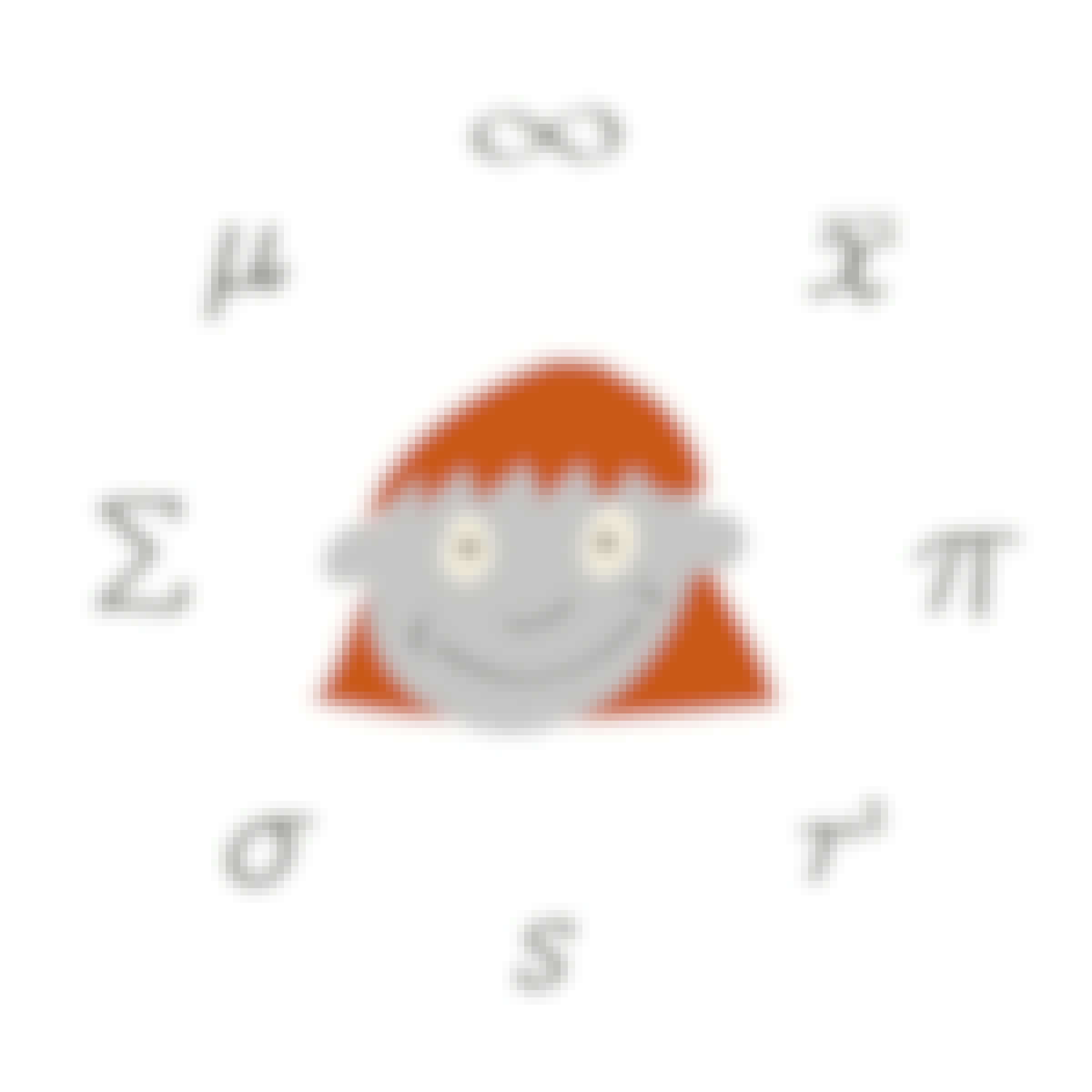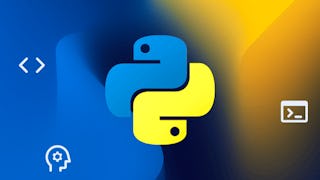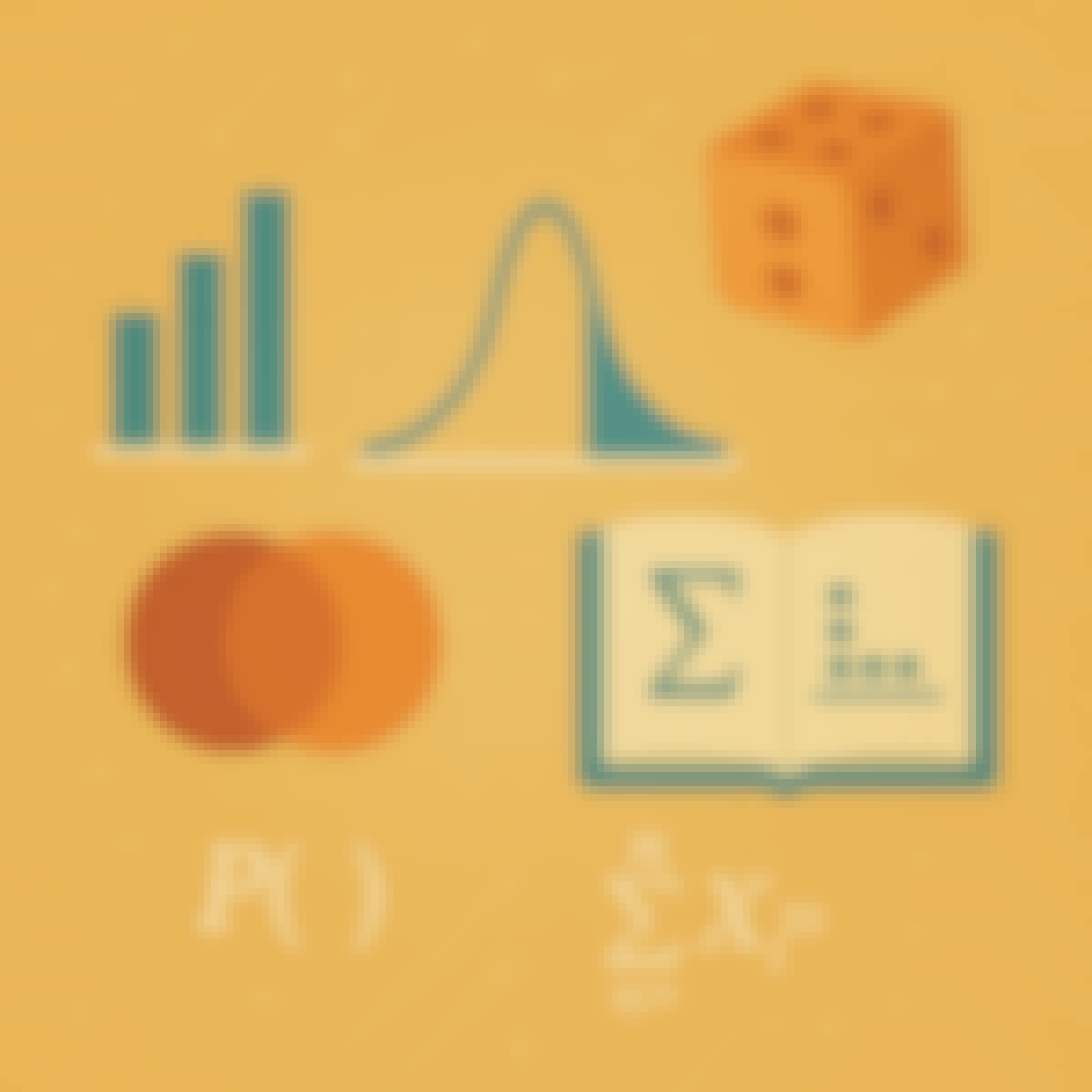- Browse
- Basic Statistics
Basic Statistics Courses
Basic Statistics courses can help you learn data collection methods, descriptive statistics, probability distributions, and hypothesis testing. You can build skills in interpreting data sets, conducting surveys, and performing regression analysis. Many courses introduce tools like Excel, R, and Python, that support analyzing data and visualizing results. By applying these skills and tools, you can effectively communicate findings and make informed decisions based on statistical evidence.
Popular Basic Statistics Courses and Certifications
 Status: Free TrialFree TrialU
Status: Free TrialFree TrialUUniversity of Amsterdam
Skills you'll gain: Statistical Hypothesis Testing, Statistics, Scientific Methods, Quantitative Research, Data Analysis Software
4.6·Rating, 4.6 out of 5 stars4.6K reviewsBeginner · Course · 1 - 3 Months
 Status: Free TrialFree Trial
Status: Free TrialFree TrialSkills you'll gain: Bayesian Statistics, Descriptive Statistics, Statistical Hypothesis Testing, Statistical Inference, Sampling (Statistics), Data Modeling, Statistics, Probability & Statistics, Statistical Analysis, Statistical Methods, Statistical Modeling, Marketing Analytics, Tableau Software, Data Analysis, Spreadsheet Software, Analytics, Time Series Analysis and Forecasting, Regression Analysis
4.8·Rating, 4.8 out of 5 stars382 reviewsBeginner · Course · 1 - 3 Months
 Status: NewNewStatus: Free TrialFree TrialR
Status: NewNewStatus: Free TrialFree TrialRReal Madrid Graduate School Universidad Europea
Skills you'll gain: Data Presentation, Matplotlib, Analytics, Probability Distribution, Data Processing, Statistical Methods, Exploratory Data Analysis, Statistical Analysis, Probability, Data Cleansing, Computer Programming Tools, Data Collection, Performance Measurement, Python Programming, Technical Analysis
Beginner · Course · 1 - 4 Weeks
 Status: PreviewPreviewS
Status: PreviewPreviewSStanford University
Skills you'll gain: Descriptive Statistics, Statistics, Statistical Methods, Sampling (Statistics), Statistical Analysis, Data Analysis, Statistical Modeling, Statistical Hypothesis Testing, Regression Analysis, Statistical Inference, Probability, Exploratory Data Analysis, Quantitative Research, Probability Distribution
4.6·Rating, 4.6 out of 5 stars4.3K reviewsBeginner · Course · 1 - 3 Months
 Status: Free TrialFree Trial
Status: Free TrialFree TrialSkills you'll gain: Excel Formulas, Microsoft Excel, Data Cleansing, Data Analysis, Data Import/Export, Spreadsheet Software, Data Wrangling, Data Quality, Pivot Tables And Charts, Google Sheets, Data Manipulation, Data Science, Information Privacy
4.7·Rating, 4.7 out of 5 stars11K reviewsBeginner · Course · 1 - 3 Months
 Status: Free TrialFree TrialU
Status: Free TrialFree TrialUUniversity of Michigan
Skills you'll gain: Statistical Hypothesis Testing, Sampling (Statistics), Statistical Modeling, Statistical Methods, Statistical Inference, Bayesian Statistics, Data Visualization, Plot (Graphics), Data Literacy, Statistics, Matplotlib, Statistical Software, Probability & Statistics, Model Evaluation, Seaborn, Statistical Analysis, Jupyter, Statistical Programming, Statistical Machine Learning, Python Programming
4.6·Rating, 4.6 out of 5 stars3.3K reviewsBeginner · Specialization · 1 - 3 Months
What brings you to Coursera today?
 Status: Free TrialFree TrialR
Status: Free TrialFree TrialRRice University
Skills you'll gain: Statistical Hypothesis Testing, Microsoft Excel, Statistical Methods, Pivot Tables And Charts, Regression Analysis, Statistics, Descriptive Statistics, Probability & Statistics, Graphing, Spreadsheet Software, Probability Distribution, Business Analytics, Statistical Modeling, Statistical Analysis, Statistical Inference, Excel Formulas, Data Analysis, Data Presentation, Model Evaluation, Sample Size Determination
4.7·Rating, 4.7 out of 5 stars13K reviewsBeginner · Specialization · 3 - 6 Months
 Status: Free TrialFree TrialG
Status: Free TrialFree TrialGGoogle
Skills you'll gain: Sampling (Statistics), Statistical Hypothesis Testing, Descriptive Statistics, Advanced Analytics, Data Analysis, Probability Distribution, Statistics, Probability, A/B Testing, Statistical Analysis, Data Science, Statistical Inference, Statistical Programming, Jupyter, Python Programming, Technical Communication
4.8·Rating, 4.8 out of 5 stars868 reviewsAdvanced · Course · 1 - 3 Months
 Status: NewNewStatus: Free TrialFree TrialB
Status: NewNewStatus: Free TrialFree TrialBBirla Institute of Technology & Science, Pilani
Skills you'll gain: Data Analysis, Statistical Analysis, Data Visualization, Predictive Modeling, Applied Mathematics
4.3·Rating, 4.3 out of 5 stars7 reviewsBeginner · Course · 1 - 3 Months
 Status: Free TrialFree TrialU
Status: Free TrialFree TrialUUniversity of Colorado Boulder
Skills you'll gain: Statistical Hypothesis Testing, Descriptive Statistics, Statistical Visualization, Data Transformation, Data Cleansing, Statistical Analysis, Regression Analysis, Probability, Probability Distribution, Sampling (Statistics), Box Plots, Histogram, R Programming, Statistical Methods, Scatter Plots, Microsoft Excel, Probability & Statistics, Statistics, Data Import/Export, Data Analysis
4.6·Rating, 4.6 out of 5 stars46 reviewsBeginner · Specialization · 3 - 6 Months
 Status: NewNewStatus: Free TrialFree Trial
Status: NewNewStatus: Free TrialFree TrialSkills you'll gain: Exploratory Data Analysis, Logistic Regression, Supervised Learning, Applied Machine Learning, Model Evaluation, Data Modeling
Intermediate · Course · 1 - 3 Months
 Status: Free TrialFree TrialJ
Status: Free TrialFree TrialJJohns Hopkins University
Skills you'll gain: Statistical Hypothesis Testing, Sampling (Statistics), Regression Analysis, Bayesian Statistics, Statistical Analysis, Probability & Statistics, Statistical Inference, Statistical Methods, Statistical Modeling, Linear Algebra, Probability, Probability Distribution, R Programming, Biostatistics, Data Science, Statistics, Mathematical Modeling, Data Analysis, Data Modeling, Applied Mathematics
4.4·Rating, 4.4 out of 5 stars786 reviewsAdvanced · Specialization · 3 - 6 Months
In summary, here are 10 of our most popular basic statistics courses
- Basic Statistics: University of Amsterdam
- Statistics Foundations: Meta
- Must-Know Concepts - Basic requirements for data analysis: Real Madrid Graduate School Universidad Europea
- Introduction to Statistics: Stanford University
- Excel Basics for Data Analysis: IBM
- Statistics with Python: University of Michigan
- Business Statistics and Analysis: Rice University
- The Power of Statistics: Google
- Probability and Statistics: Birla Institute of Technology & Science, Pilani
- Statistics and Applied Data Analysis: University of Colorado Boulder
Frequently Asked Questions about Basic Statistics
Basic statistics is a branch of mathematics that deals with the collection, analysis, interpretation, presentation, and organization of data. It is essential because it provides the tools needed to make informed decisions based on data, which is increasingly important in various fields such as business, healthcare, social sciences, and more. Understanding basic statistics helps individuals interpret data accurately, recognize trends, and make predictions, which can significantly impact decision-making processes.
A background in basic statistics opens up various job opportunities across multiple sectors. Positions such as data analyst, market researcher, business analyst, and quality control analyst often require a solid understanding of statistical principles. Additionally, roles in healthcare, education, and social research also value statistical skills, as they rely on data analysis to inform practices and policies.
To learn basic statistics, you should focus on several key skills. These include understanding descriptive statistics (mean, median, mode), probability concepts, data visualization techniques, and basic inferential statistics (hypothesis testing, confidence intervals). Familiarity with statistical software or tools, such as Excel or R, can also enhance your ability to analyze data effectively.
There are several excellent online courses available for learning basic statistics. For instance, the Basic Statistics course provides a comprehensive introduction to the subject. Additionally, the Basic Inferential Statistics for Psychology Specialization offers a focused approach for those interested in psychology-related applications of statistics.
Yes. You can start learning basic statistics on Coursera for free in two ways:
- Preview the first module of many basic statistics courses at no cost. This includes video lessons, readings, graded assignments, and Coursera Coach (where available).
- Start a 7-day free trial for Specializations or Coursera Plus. This gives you full access to all course content across eligible programs within the timeframe of your trial.
If you want to keep learning, earn a certificate in basic statistics, or unlock full course access after the preview or trial, you can upgrade or apply for financial aid.
Learning basic statistics can be approached through various methods. Start by enrolling in online courses that cover the fundamentals. Engage with interactive exercises and quizzes to reinforce your understanding. Additionally, practicing with real-world data sets can help solidify your skills. Joining study groups or forums can also provide support and enhance your learning experience.
Typical topics covered in basic statistics courses include descriptive statistics, probability theory, sampling methods, hypothesis testing, and regression analysis. These subjects provide a solid foundation for understanding how to analyze and interpret data effectively.
For training and upskilling employees, courses like the Business Statistics and Analysis Specialization are particularly beneficial. They focus on applying statistical methods to business contexts, making them ideal for workforce development in data-driven environments.










